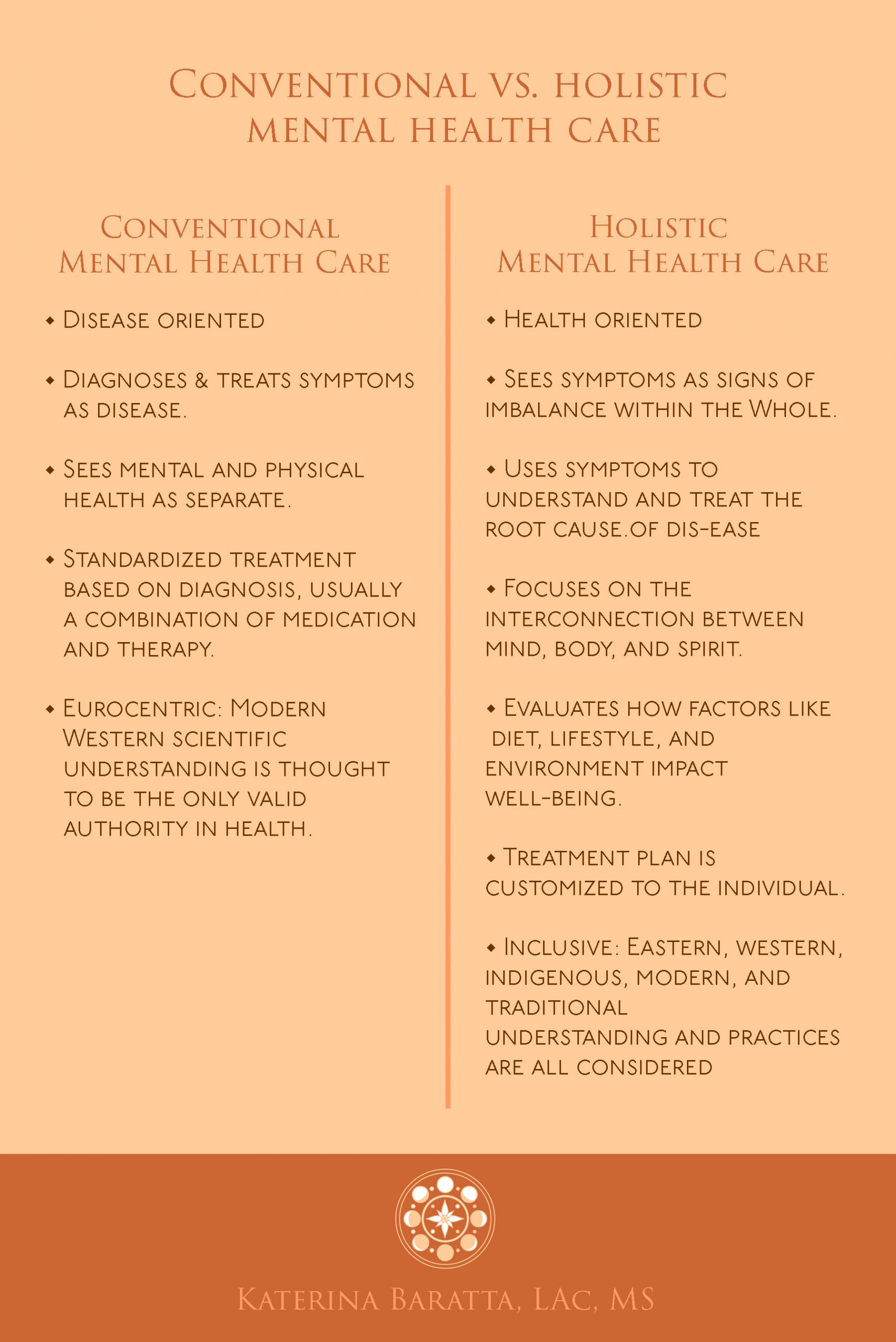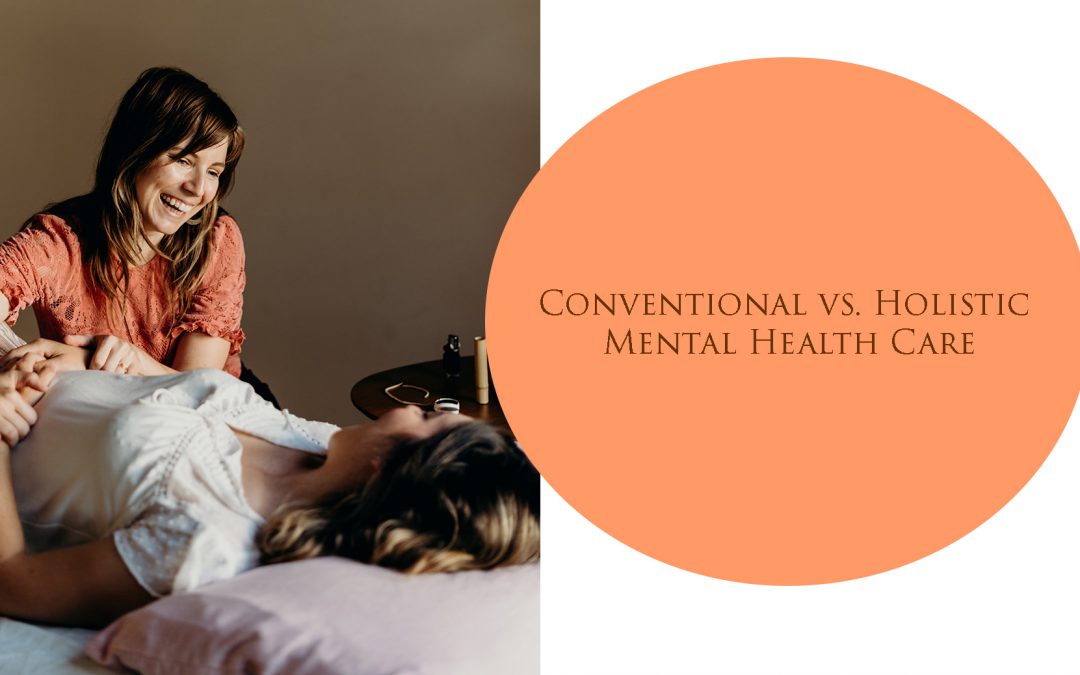There are some important differences between conventional and holistic mental health care.
And if you want to find the support you need to heal, you’ve got to know what these differences are.
Because the conventional mental health care model will have you believe that the problem is all in your head.
Your discomfort, they say, comes from thoughts about your past and how those past experiences changed your brain chemistry.
This is true of course.
But it’s only part of the story.
A big piece of the mental health puzzle is missing when you use the conventional model.
Holistic mental health care can fill in those gaps.
Because mental health is rooted in the body.
Diet, lifestyle, exercise, and environment have a huge impact on how you feel.
Gut health, blood sugar, inflammation, and hormone flow all come into play.
And I can’t go on without mentioning that a sense of connection to nature, other people, and your Higher Self can change everything when it comes to mental health.
If you don’t take all of these factors into consideration, you’re missing the corner pieces of the mental-health puzzle.
Holistic mental health care includes all of it.
Conventional treatments like medication, talk and cognitive-behavioral therapies can be helpful in alleviating mental health symptoms on an as-needed basis.
But holistic mental health care has a bigger toolbox that empowers patients to take charge of their own health and happiness.
Most conventional mental health professionals have very little training in transformative healing methods like nutrition, mindful movement, and sleep optimization.
Meanwhile, integrating these into a person’s lifestyle can completely heal most mental health issues.
Just look at this 2019 review published in the Journal of Neurocience Research, which demonstrates a clear link between inflammation and the gut-microbiome in depression and anxiety. 1
They found multiple pathways by which stress-induced inflammation harms brain function and ultimately affects mental health.
And they also reviewed how probiotic and prebiotic treatments can be beneficial in alleviating stress, anxiety, and depression.
Or look at this 2016 meta-analysis that was published in Sleep Medicine, which showed conclusively that sleep deprivation leads to increased levels of anxiety. 2
Post-partum women and night-shift workers could benefit immensely from this kind of information, but conventional mental health professionals rarely looks at these kinds of factors before making their diagnosis.
They rely so heavily on medication and therapy that they overlook a lot of the factors that are at the root of mental health issues.
Conventional mental health care is further limited because it treats diseases and focuses almost entirely on getting rid of surface symptoms.
The conventional worldview is reductionist, breaking the complex, interconnected, dynamic Whole that you are into the tiniest possible categories.
There’s a doctor for neurology.
A doctor for your heart.
And yes, a doctor for your mind.
They’re all working with interconnected systems, yet none of them talk with each other!
Holistic mental health care, on the other hand, doesn’t treat disease.
It treats the Whole person.
And it looks at all of the unique circumstances that impact your well-being at any given moment.
Holistic mental health care uses symptoms as clues to find the underlying imbalance that is at the root of what’s making you feel bad in the first place.
This is important.
Because you are a complex, interconnected, dynamic being.
And if you just cover up symptoms you might feel a bit better, but the underlying imbalance is still there.
Unless the underlying imbalance is resolved, other symptoms that conventional medicine often considers to be entirely unrelated can —and will!— pop up down the line.
For example, most conventional doctors would consider, anxiety, digestive irregularity, insomnia, and foggy-brain feeling to be separate issues.
But when you look at them holistically, all of these symptoms point to an underlying imbalance that can be healed.
To sum up, here are the key differences between conventional and holistic mental health care:

with a holistic mental health practitioner’s support and guidance, you can learn how to bring yourself back to balance, naturally.
Want to learn how?
I have a lot of free resources on this website to get you started.
And if you’re ready to really take your health and happiness into your own hands, click here to book a free consultation and find out if holistic mental health coaching is right for you.
I can’t wait to see where this takes you!





